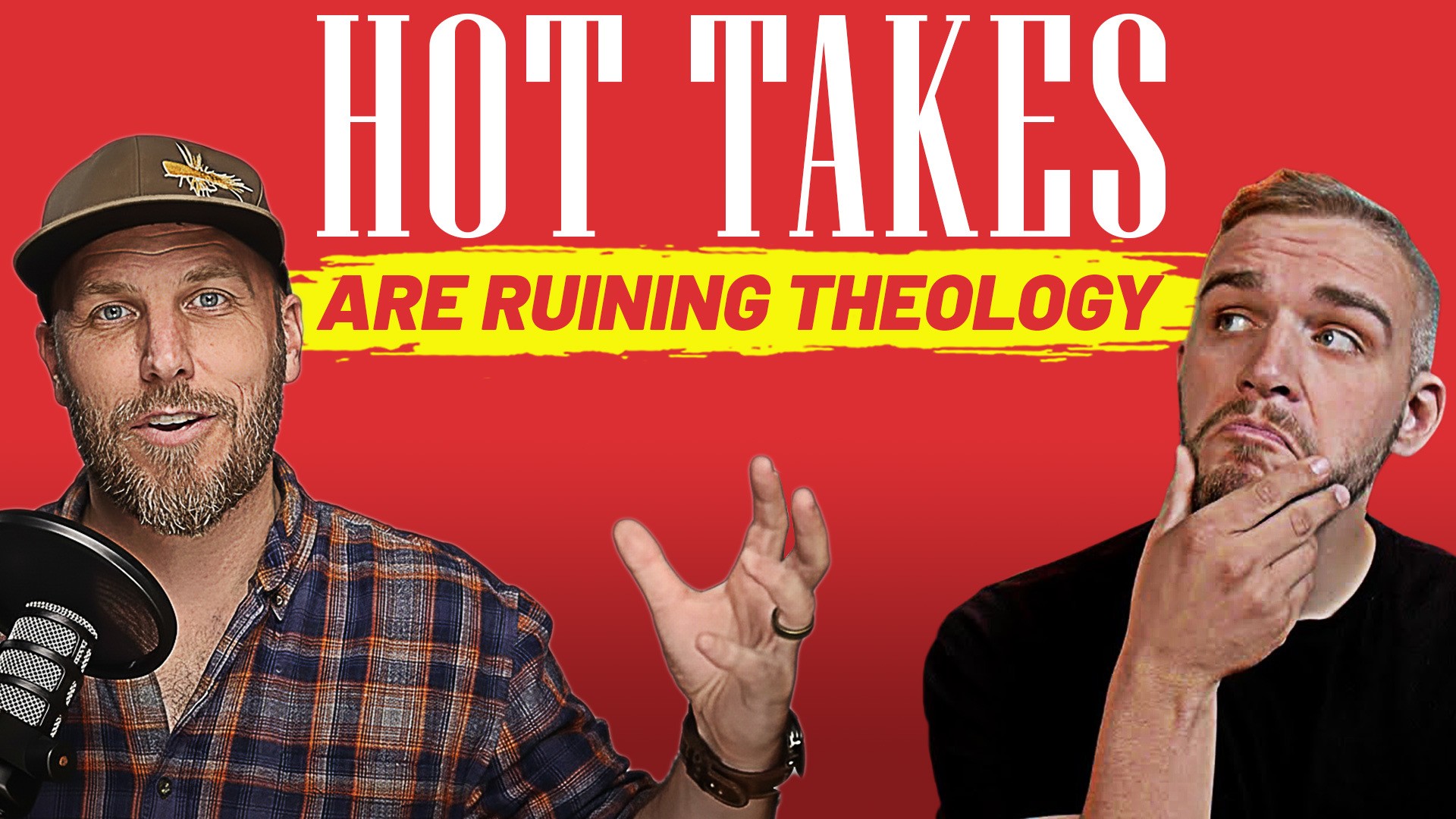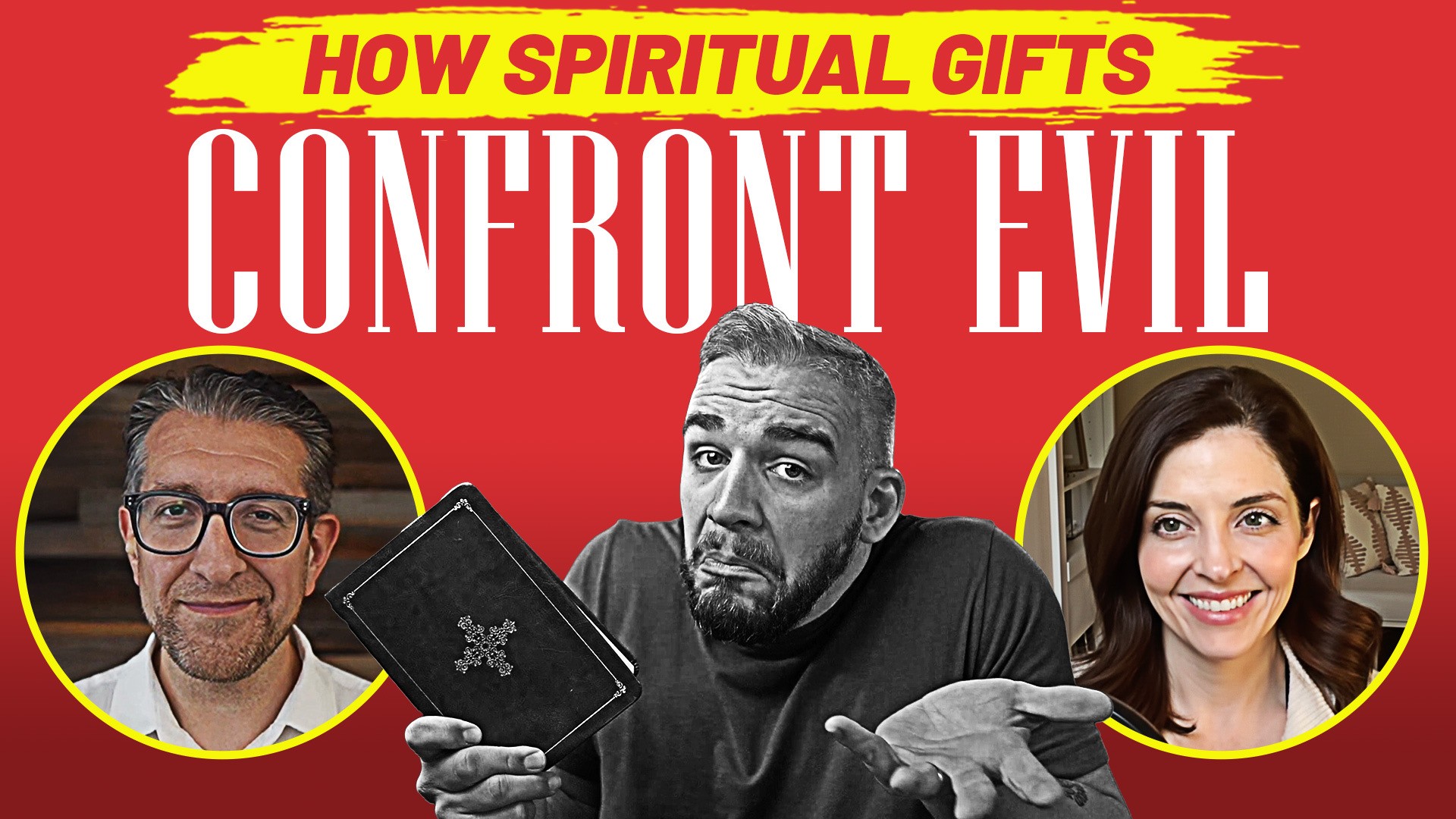Atheism vs. Christianity: How Atheists NEED God to Make Their Case - Interview with Frank Turek
Are atheists secretly borrowing from God? Frank Turek with Cross Examined reveals how atheism needs God to make its case!
Transcript Summary
Christian apologist Frank Turek joined hosts Michael Rowntree and Michael Miller to explore his provocative thesis that atheists must “steal from God” to construct their arguments against divine existence. Turek’s book “Stealing from God” presents a systematic challenge to atheistic worldviews, demonstrating how secular arguments inadvertently depend on theistic foundations.
The conversation centered around Turek’s acronym “CRIMES,” which outlines six areas where atheists unconsciously borrow from Christian presuppositions. The “E” for evil provided a striking example: when atheists argue that evil disproves God’s existence, they must first establish an objective standard of goodness. Without God as the ultimate moral standard, Turek argued, concepts of good and evil collapse into mere human opinion, making the problem of evil argument self-defeating.
This philosophical challenge extends to evolutionary ethics, where atheists attempt to ground morality in human flourishing or survival mechanisms. Turek demonstrated the inadequacy of this approach by highlighting its arbitrary nature—if survival justifies morality, then historically destructive figures like Hitler could claim moral legitimacy for advancing their preferred groups. The evolutionary argument smuggles in moral assumptions without providing ultimate justification for why human flourishing should be considered objectively good.
The discussion revealed how materialism—the belief that reality consists only of physical matter—undermines rational thought itself. Drawing from C.S. Lewis, Turek argued that if humans are merely “moist robots” responding to chemical reactions, then reasoning becomes impossible. This creates a self-defeating scenario where materialists must assume their worldview is false (that minds can freely evaluate evidence) in order to argue that it’s true.
Turek’s approach to intelligent design arguments proved particularly compelling. Rather than arguing from apparent design, he demonstrated actual design through information theory. The human genome contains 3.2 billion letters of genetic code—a message far more complex than simple phrases like “John loves Mary” that we readily attribute to intelligent sources. This isn’t a “God of the gaps” argument but positive evidence for an intelligent designer based on our universal experience that information requires an informational source.
The conversation addressed common objections to biblical narratives, particularly the Canaanite conquest accounts in Joshua. Turek emphasized that these were specific, temporal judgments by God for particular sins rather than blanket endorsements of violence. He distinguished between Islamic jihad (warfare against unbelievers) and Old Testament accounts (judgment against specific moral evil), while noting that much of the language employed ancient Near Eastern hyperbole rather than literal extermination commands.
On the resurrection of Jesus, Turek employed his characteristic direct approach, systematically dismantling alternative explanations. He challenged the grave robber theory by questioning motivation—why would Jewish believers steal a body and then suffer martyrdom for a known lie? The hallucination theory collapsed under scrutiny since hallucinations are individual experiences, not group events involving 500 witnesses who could touch and eat with the risen Christ. Most importantly, any hallucination theory fails to explain the empty tomb, which would have immediately disproven resurrection claims.
The discussion ventured into contemporary scientific debates, where Turek outlined his “LIFE” acronym challenging macroevolution: Limited ability to change (genetic boundaries resist breaking despite intelligent intervention), Irreducible complexity (gradual modification destroys function), Fossil record problems (explosive appearances rather than gradual transitions), and Epigenetic information requirements (new body plans need more than DNA modifications). He noted that even secular scientists increasingly acknowledge Darwinism’s inadequacy, though popular culture lags behind academic recognition.
Turek’s critique of theistic evolution proved particularly pointed. When confronted with theistic evolutionists who couldn’t specify where God intervenes, he argued they’re essentially promoting intelligent design under academic cover. The social pressures within academia, he suggested, incentivize evolutionary language regardless of evidence, creating environments where career preservation trumps truth-seeking.
The conversation highlighted how atheistic worldviews consistently require borrowing from theistic frameworks. Laws of logic, mathematical principles, moral standards, and rational thought itself presuppose a transcendent foundation that materialism cannot provide. This creates what Turek calls a “cracked foundation”—philosophical systems that appear coherent on the surface but collapse when their foundational assumptions are examined.
Turek’s campus ministry experience informed his approach to engaging skeptics. Rather than immediately defending Christianity, he often focuses on exposing atheism’s internal contradictions. This strategy proves effective because it demonstrates that rejecting God requires more faith than believing in Him, since atheistic explanations consistently violate reason, evidence, and moral intuition.
The episode concluded with Turek’s evangelistic approach—a rapid-fire presentation focusing on universal moral failure, divine justice, and the grace available through Christ’s substitutionary atonement. His method emphasizes that everyone faces either justice or grace, making the choice both urgent and personal.
Throughout the discussion, Turek’s apologetic methodology demonstrated how effective Christian argumentation can expose the borrowed capital underlying secular worldviews. By showing how atheists must steal from God to make their case, he turns the tables on skeptical arguments, revealing that Christianity provides the necessary foundation for the very reasoning, morality, and meaning that make human discourse possible.
This approach offers believers practical tools for engaging skeptics while simultaneously strengthening their own intellectual foundations. Rather than playing defense against atheistic challenges, Turek’s method puts Christianity on the offensive, demonstrating that secular worldviews cannot account for the basic assumptions they require to function coherently.



